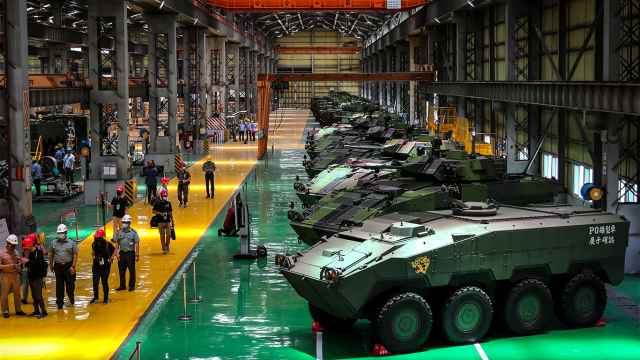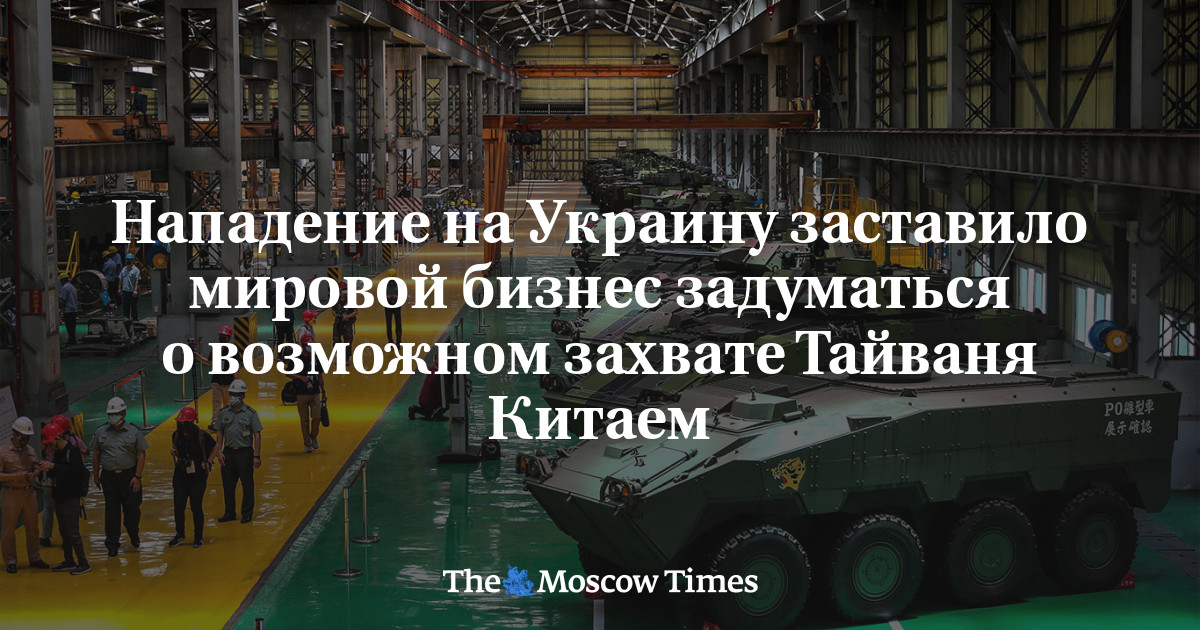
Business executives are increasingly concerned about the possibility of a war over Taiwan, consultants say. Since the outbreak of hostilities in Ukraine, demand for briefings on the likelihood of a Chinese invasion and its consequences has increased dramatically.
China’s crackdown on democratic freedoms in Hong Kong, coupled with Russia’s invasion of Ukraine, has “drastically heightened” international business concerns, says Eric Sayers, head of the Indo-Pacific practice at Beacon Global Strategies:
A year ago, our clients occasionally asked a question or two about Taiwan. Now we are asked to directly inform CEOs about what is happening in Taiwanese politics, about the military situation, and are asked to organize meetings with high-ranking US officials or retired military personnel to understand how they assess the situation.
Businesses need to understand how the Taiwan crisis might develop in order to plan for an emergency.
Concerns have risen sharply in the past two years as Chinese warplanes have increasingly flown near the island, which Beijing claims is Chinese territory. US President Joe Biden warned during a recent visit to Japan that the US would help militarily defend Taiwan from an attack by China.
Taiwan faces an acute threat from China this decade, Director of National Intelligence Avril Haines said in May. And Admiral John Aquilino, the commander of US forces in the Indo-Pacific region, told the Financial Times in March that the invasion of Ukraine should remind people that the threat to Taiwan is not an abstraction.
The invasion of Ukraine has sparked a “sharp increase” in interest in Taiwan, says Kurt Thon, managing partner at The Asia Group: “Companies want to know how to perceive situational risks, what key elements to monitor on an ongoing basis.”
He said companies ranging from technology and financial groups to pharmaceutical companies and consumer goods makers are requesting briefings on the topic.
The range of risks is also wide: from the consequences for Taiwan as the world’s largest semiconductor producer to the ability of companies to continue production in China if it attacks the island, explains former CIA China analyst Chris Johnson, who now heads China Strategies Group. “In the news cycle that CEOs deal with, this is such an important topic that they can’t help but worry,” he says. “The invasion of Ukraine made it urgent, whereas previously it was a standard question number six: “How are things in Taiwan?”
Speaking to top international executives in London last week, FBI Director Christopher Wray urged them to think seriously about the threat China poses to Taiwan. Especially after Russia’s invasion of Ukraine, which left companies dealing with a whole host of problems, from sanctions to business disruptions and negative economic consequences. Ray added:
Many Western companies had their fingers in the door when it slammed shut. If China invades Taiwan, we will see it again, only on a much larger scale. As in Russia, Western investments, built up over the years, may be held hostage, capital unavailable, supply chains and relationships severed.
Dale Buckner, CEO of an international security firm Global Guardiansays that seven companies from the rating approached him Fortune 500 requesting that emergency plans be prepared in Taiwan, including the evacuation of personnel. Three of them, he said, are from the technology industry: “You know these brands. And frankly, they are very scared.”

